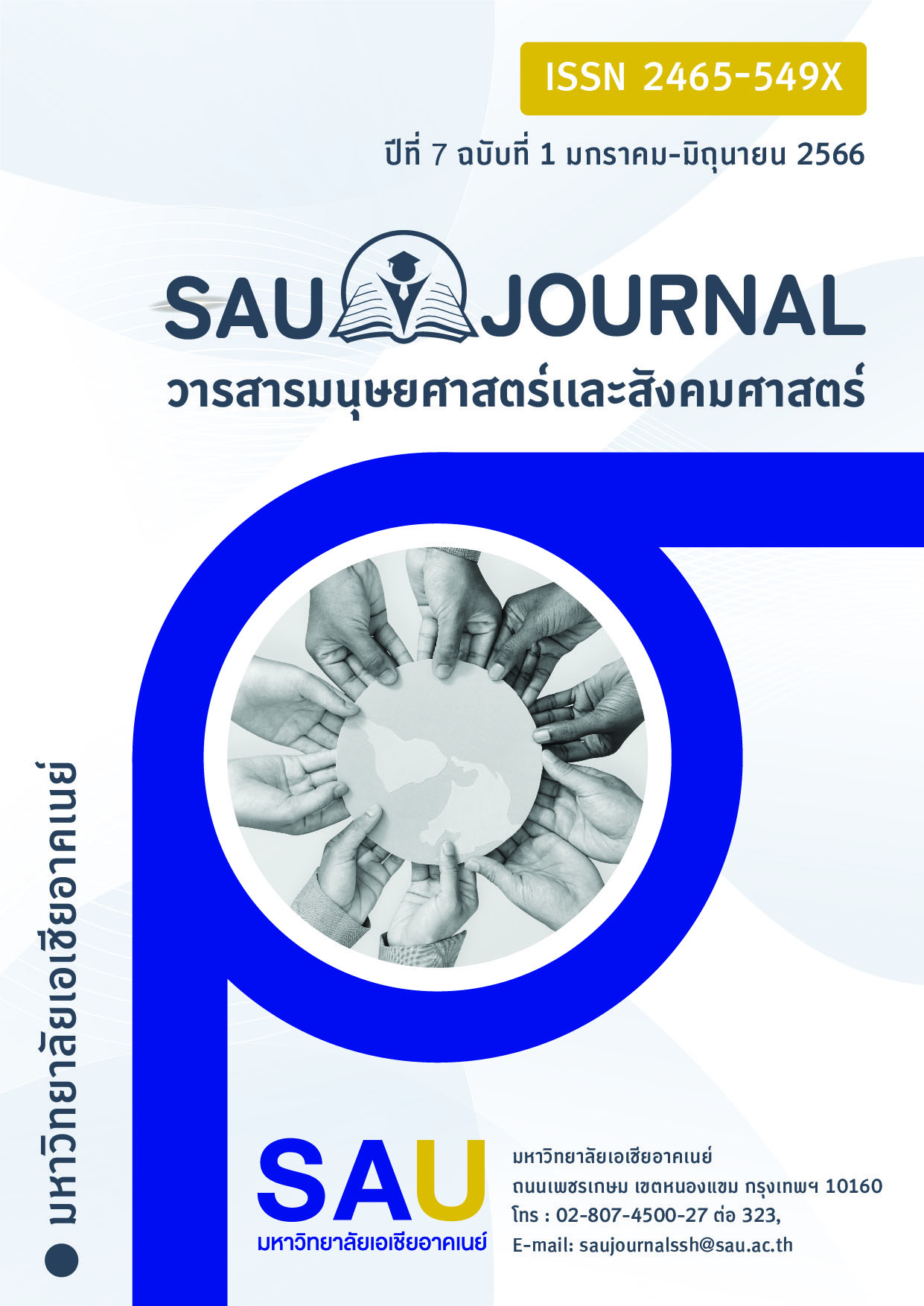Surviving the Shift in Pedagogy: Integration of Cognition, Metacognition, and Motivation of Learners’ Self-Regulated Learning Strategies (SRLS) During Online and Onsite Classes
คำสำคัญ:
กลยุทธ์การกำกับตนเองในการเรียนรู้, ออนไลน์, ด้วยตนเอง, การกำกับตนเองในการเรียนรู้บทคัดย่อ
เนื่องจากนักศึกษาต้องมีส่วนร่วมในการรเรียนออนไลน์เพิ่มมากขึ้น จึงเป็นสิ่งจำเป็นที่ต้องมีความเข้าใจความแตกต่างของกลยุทธ์การกำกับตนเองในการเรียนรู้ของนักศึกษาที่ใช้ในการเรียนแบบออนไลน์และแบบเข้าชั้นเรียนปกติ เพราะกลยุทธ์การกำกับตนเองในเรียนเรียนรู้ (SRL) มีความสำคัญต่อผลการเรียนและพฤติกรรมของนักศึกษา และด้วยความท้าทายต่างๆ ที่เป็นเอกลักษณ์เฉพาะกลุ่ม จึงทำให้กลยุทธ์การกำกับตนเองในการเรียนรู้มีความหลากหลายและทำให้มีผลกับการคาดการณ์พฤติกรรมของนักศึกษาในการเรียนทั้งรูปแบบออนไลน์และแบบเข้าชั้นเรียนปกติ บทความนี้มีวัตถุประสงค์เพื่อเป็นแนวทางสำหรับนักศึกษาและนักวิชาการในการหากลยุทธ์การกำกับตนเองในการเรียนรู้ที่ดีที่สุดเพื่อนำไปปรับใช้ในสถานกาณ์ต่างๆ บทความนี้นำเสนอมุมมองของนักศึกษาเกี่ยวกับการเรียนรูปแบบออนไลน์และความท้าทายที่เกิดขึ้นระหว่างการใช้การเรียนการสอนรูปแบบนี้ พร้อมกับความเปลี่ยนแปลงในด้านต่างๆ ของการเรียนการสอนในรูปแบบนี้ นอกจากนี้ยังมีข้อเสนอแนะและแนวทางในการพัฒนาการจัดการเรียนการสอนโดยการเสนอแหล่งข้อมูลออนไลน์ที่เป็นประโยชน์ รวมถึงความเข้าใจของผลกระทบที่อาจมาพร้อมกับความรู้ด้านเทคโนโลยี ผู้เขียนหวังเป็นอย่างยิ่งว่าบทความนี้จะเป็นประโยชน์ต่อภาคการศึกษาในช่วงที่มีผลกระทบจากสถานกาณ์โควิด 19
เอกสารอ้างอิง
Dinsmore, D., Alexander, P., & Loughlin, S. (2008). Focusing the conceptual lens on metacognition, self-regulation, and self-regulated learning. Educational Psychology Review, 20, 391-409.
El-Adl, A., & Alkharusi, H. (2020). Relationships between Self-Regulated Learning Strategies, Learning Motivation and Mathematics Achievement. Cypriot Journal of Educational Sciences, 15(1), 104-111.
Lee, D., Watson, S. L., & Watson, W. R. (2020). The Influence of Successful MOOC Learners’ Self-Regulated Learning Strategies, Self-Efficacy, and Task Value on Their Perceived Effectiveness of a Massive Open Online Course. International Review of Research in Open and Distributed Learning, 21(3), 81-98.
Lee, D., Watson, S. L., & Watson, W. R. (2020). The Relationships Between Self-Efficacy, Task Value, and Self-Regulated Learning Strategies in Massive Open Online Courses. International Review of Research in Open and Distributed Learning, 21(1), 23- 39.
Moreno-Marcos, P. M., Munoz-Merino, P. J., Maldonado-Mahauad, J., Perez-Sanagustin, M.,
Alario- Hoyos, C., & Kloos, C. D. (2020). Temporal analysis for dropout prediction using self- regulated learning strategies in self-paced MOOCs. Computers & Education, 145, 103728.
Paris, S. & Paris, A. (2001). Classroom applications of research on self-regulated learning. Educational Psychology, 36, 89-101.
Reparaz, C., Aznárez-Sanado, M., & Mendoza, G. (2020). Self-regulation of learning and MOOC retention. Computers in Human Behavior, 111, 106423.
Schraw, G., Kauffman, D. F., & Lehman, S. (2002). Self-regulated learning. The encyclopedia of cognitive science, 1063-1073.
Shen, D., Cho, M. H., Tsai, C. L., & Marra, R. (2013). Unpacking online learning experiences: Online learning self-efficacy and learning satisfaction. The Internet and Higher Education, 19, 10-17.
Sun, T., & Wang, C. (2020). College students’ writing self-efficacy and writing self-regulated learning strategies in learning English as a foreign language. System, 90, 102221.
Teaching Excellence in Adult Literacy (2010). Self- Regulated Learning. Retrieved from https://lincs.ed.gov/sites/default/files/3_TEAL_Self%20Reg
Yu, H., Harper, S., & Vigo, M. (2021). Modeling Micro-Interactions in Self-Regulated Learning: a Data-Driven Methodology. International Journal of Human-Computer Studies,102625.
Zimmerman, B., Bonner, S., & Kovach, R. (2002). Developing self-regulated learners: Beyond achievement to self-efficacy. Washington, DC: American Psycho-logical Association.
Zimmerman, B. & Schunk, D. (2001). Self-regulated learning and academic achievement: Theoretical perspectives. Mahwah, NJ: Lawrence Erlbaum Associates.






